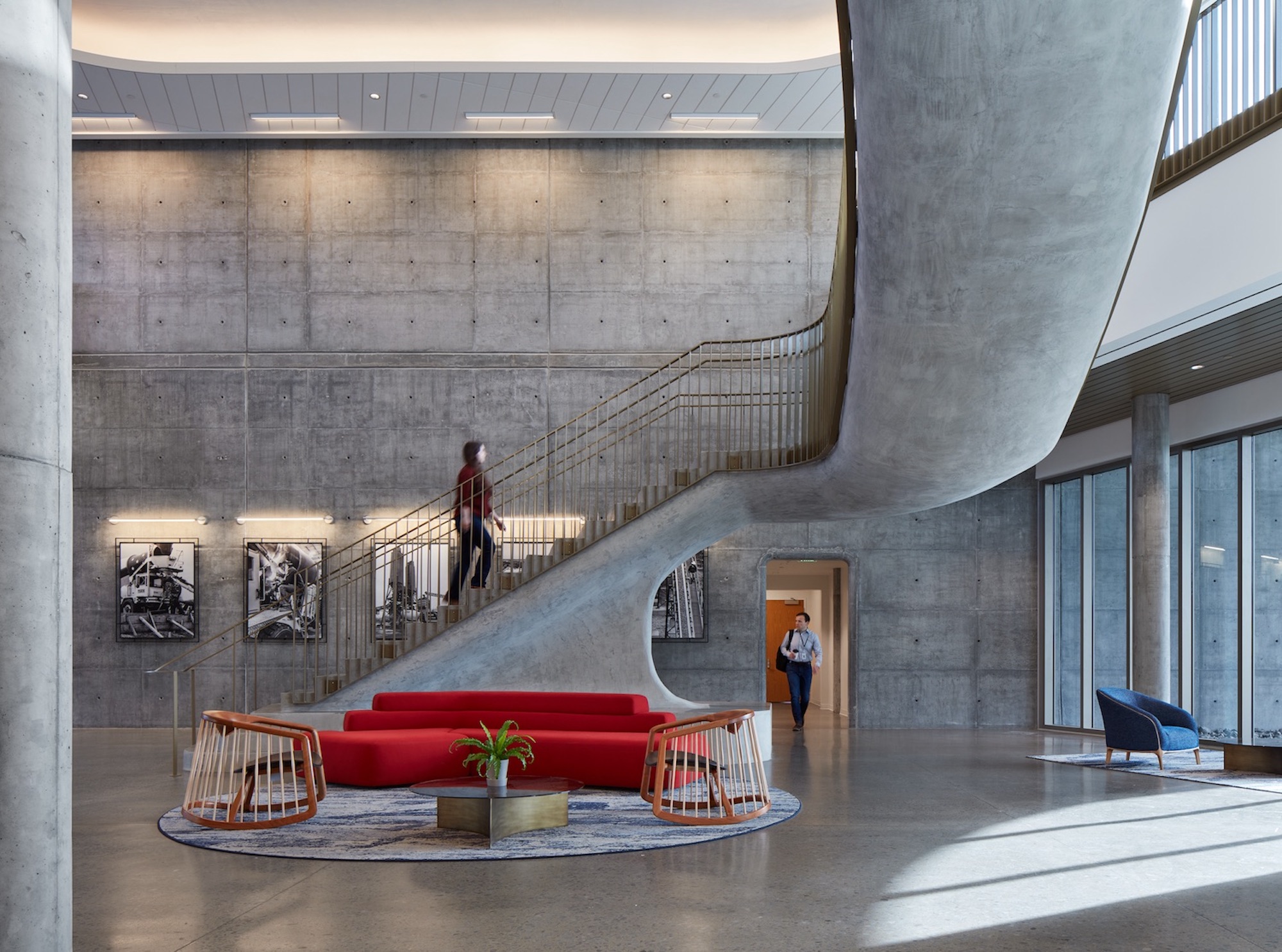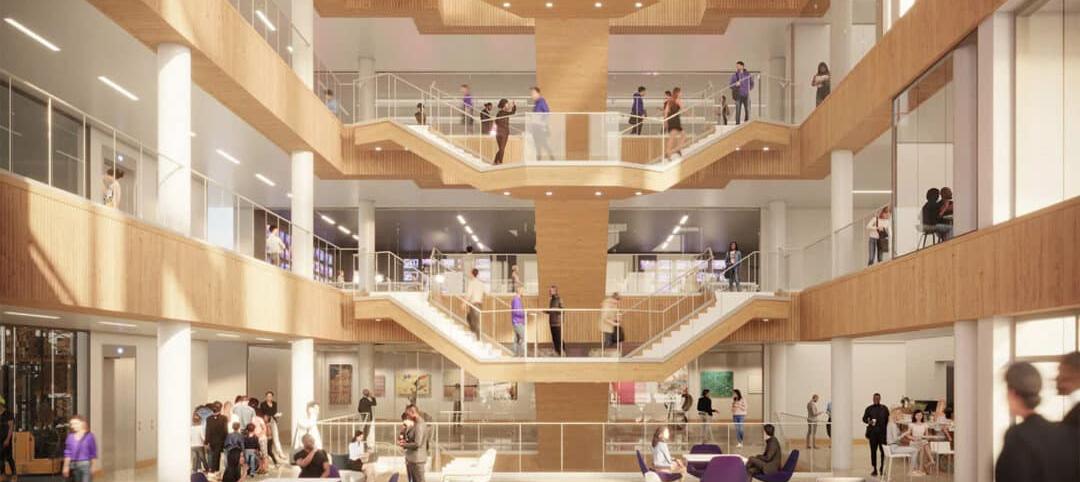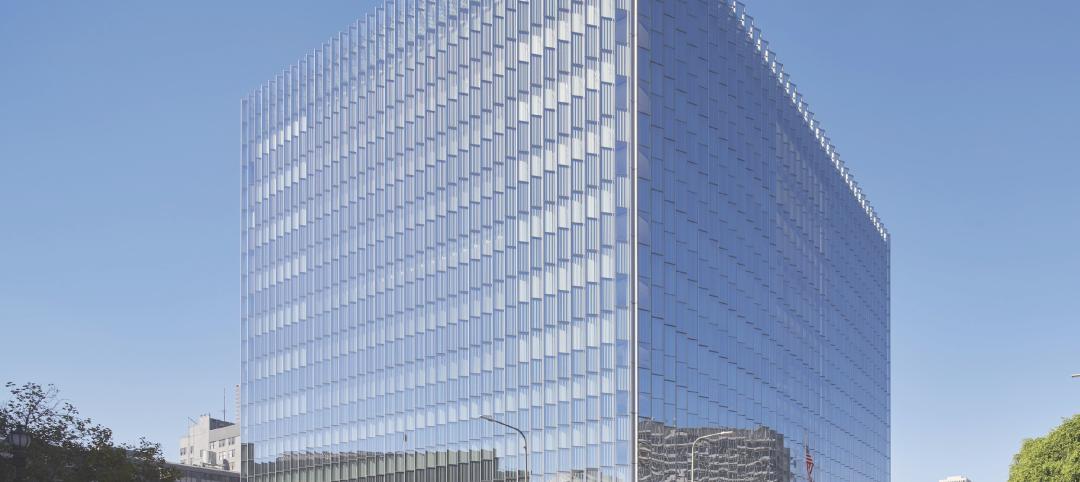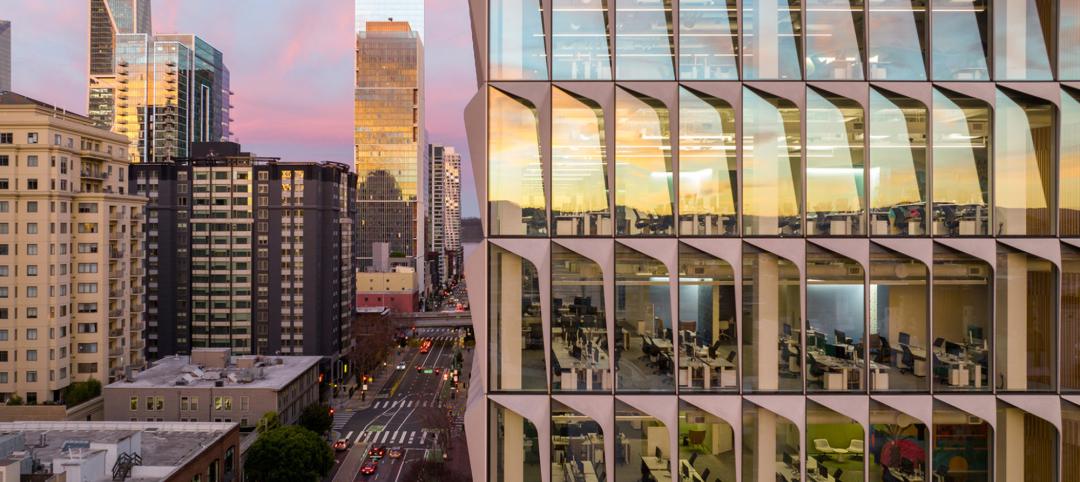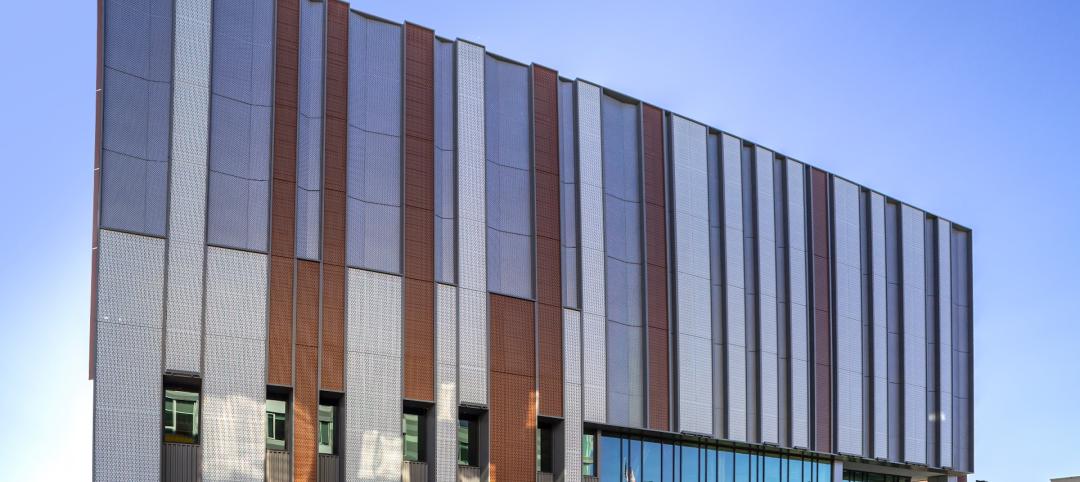In 1999, Tennessee concrete company Smyrna Ready Mix started off with just three trucks. Since then, it has grown to 5,400 employees in 16 states. Last year, the company moved from its small office in downtown Nashville to its new corporate headquarters on an 800-acre site.
Designed by EOA Architects to showcase various concrete processes and applications, the five-story, 85,000-sf building’s vertical layering mimics the patterns in the company’s stone quarry, located on the opposite end of the campus site. The building’s glass and concrete bands are meant to mirror the quarry’s natural contours and striations.
Inside, the helix of the building’s circulation patterns draws inspiration from the shape of a concrete mixing truck drum. Exposed concrete walls extend unobstructed from the first through fifth floors. The shear wall, the elevator, and the stair cores are 18-inch-thick poured walls with a custom radius, minimizing the amount of finishing work needed post-pour.
The interior design also references the company’s brand and industry. Custom-designed light fixtures echo the forms of concrete drums. The steps’ curved underside nods to the supply chutes used to pour concrete from the mixing drum. In the training room, the wet bar’s backsplash has been made with repurposed test cylinders, which are used to determine the strength of a mixed concrete batch. Furniture and textiles incorporate the red, white, and blue colors of the company’s logo.
The project also features corporate amenities for onsite staff and drivers, including dining, a fitness facility, training and community rooms, and a daycare center for 100 of the company and community’s children. Future plans for the campus include walking paths.
On the Building Team:
Owner: SRM Concrete
Design architect: EOA Architects
Architect of record: EOA Architects
MEP engineer: I.C. Thomasson Associates
Structural engineer: EMC Structural Engineers
General contractor/construction manager: DPR Construction
Here is the design statement from EOA Architects:
Smyrna Ready Mix is a family-owned and operated concrete company founded in Smyrna, Tennessee in 1999. Beginning with only three trucks, the company has grown to 5,400 employees in 16 states. This dramatic expansion meant it was time to move from a cramped office in downtown Nashville to a new corporate headquarters on an 800-acre site near an interstate interchange just south of the city. Here, the new building will help anchor a new mixed-use development, provide a landmark for a new corporate campus and help definite this gateway to the town of Smyrna.
Office Building as Billboard
Designed to showcase the varied types of concrete processes and applications, the vertical layering of the five-story building mimics the rhythms found in the company’s stone quarry, also located on the site. The building profile rises at the opposite end the site from the sunken quarry, creating an inverse relationship that guides the design. The building’s floor plate pushes and pulls to create an organic form with glass and concrete bands mirroring the quarry’s natural contours and striations.
Full glazing takes advantage of surrounding views and showcases the structural components, including numerous types of concrete and finishing styles. Slender 16-inch diameter columns made of a high-strength concrete mix balance on elegant bases tapered to 10 inches at the first floor and do the work of a typical 24-inch column. Cantilevered post-tension slabs demonstrate the material’s sculptural possibilities. The building contains no 90-degree edges; everything is rounded, creating a dynamic flow that further reinforces concrete’s versatility.
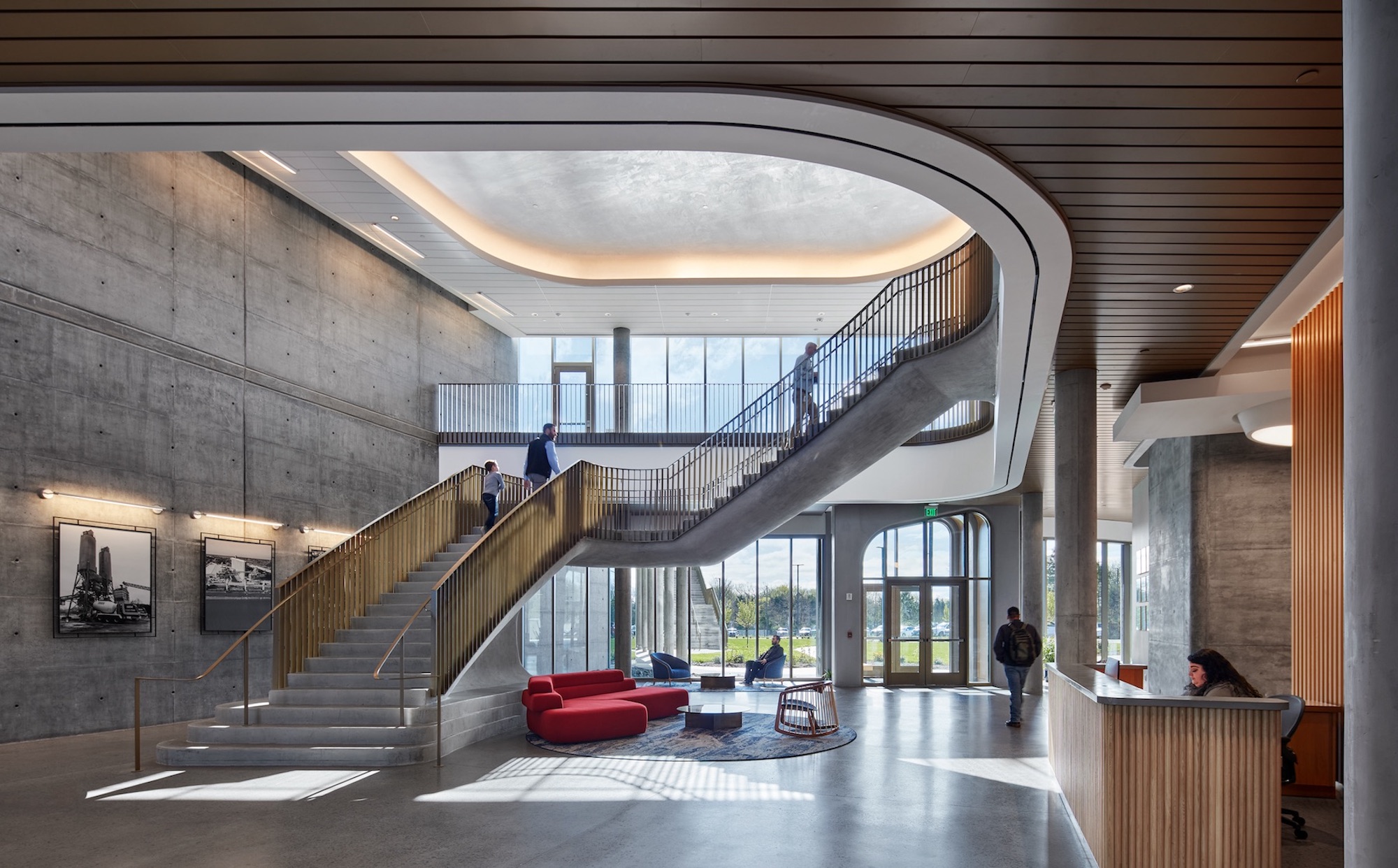
Workplace design uses lightness, movement
EOA steered away from a brutalist concrete expression to emphasize light and lightness and create a warm and welcoming environment. Users enter the building through three large concrete fins that provide the framework for the entry vestibules. The lobby floor is a custom concrete mix developed by EOA and SRM that resembles terrazzo. The lobby’s material palate adds a vertical oak motif complemented by champagne colored metal ceilings and railings. A double cantilevered concrete stair anchored in front of the exposed double-height concrete shear wall cascades gracefully into the lobby space, establishing the sense of open movement that permeates the building.
Inspired by the shape of a concrete mixing truck drum, the design incorporates an internal helix into the building’s circulation patterns. Vertical circulation is highlighted through the use of exposed concrete walls that extend unobstructed from the first through fifth floors. The shear wall, as well as the elevator and stair cores are 18-inch-thick poured walls with a custom radius to soften the edges and minimize the amount of finishing work required post-pour. These elements were left in a natural sculptural state with only a matte finish sealer applied to allow the form-work joints to cast shadows as sunlight moves through the space.
Artful connections to the company's brand and industry infuse the interiors: Custom designed light fixtures echo the forms of concrete drums. The curved underside of the monumental steps is a nod to the supply chutes used to pour concrete from the mixing drum. In the training room, test cylinders, used to determine the strength of each mixed concrete batch, were cut and re-purposed as the backsplash of the training room wet bar. Furniture and textiles subtly incorporate the red, white and blue colors of the company's logo.
Office building supports family business, community vision
The family had a specific and progressive vision for its new home. It was important to them to invite the community into the building and onto the campus, which includes a historic community cemetery. Future plans include walking paths to create a larger, healthy holistic environment. The project also prioritized unprecedented corporate amenities for both on-site staff as well as drivers: the first floor includes on-site dining, a fitness facility, training and community rooms as well as a daycare center for 100 of the company and community’s children.
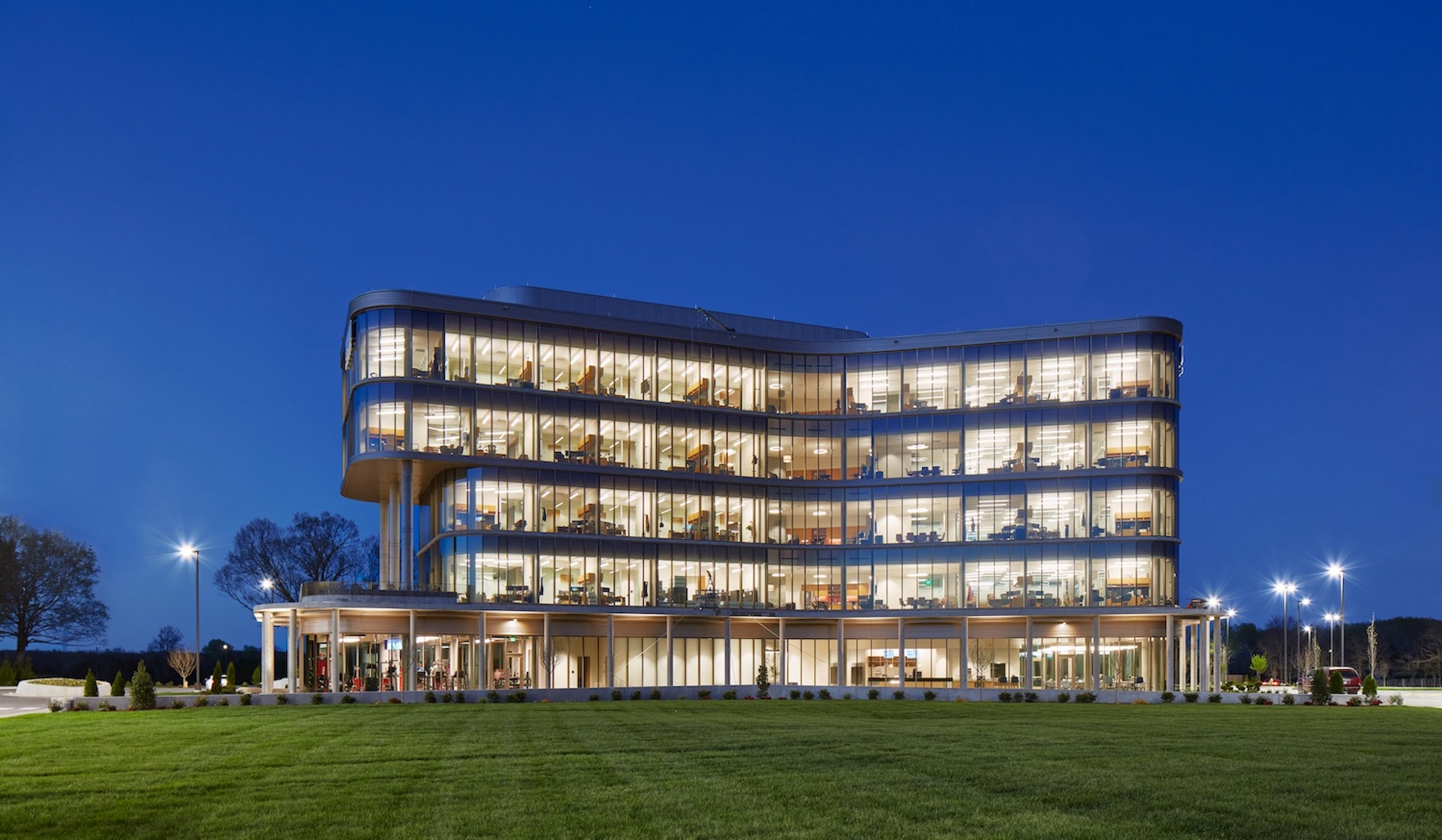
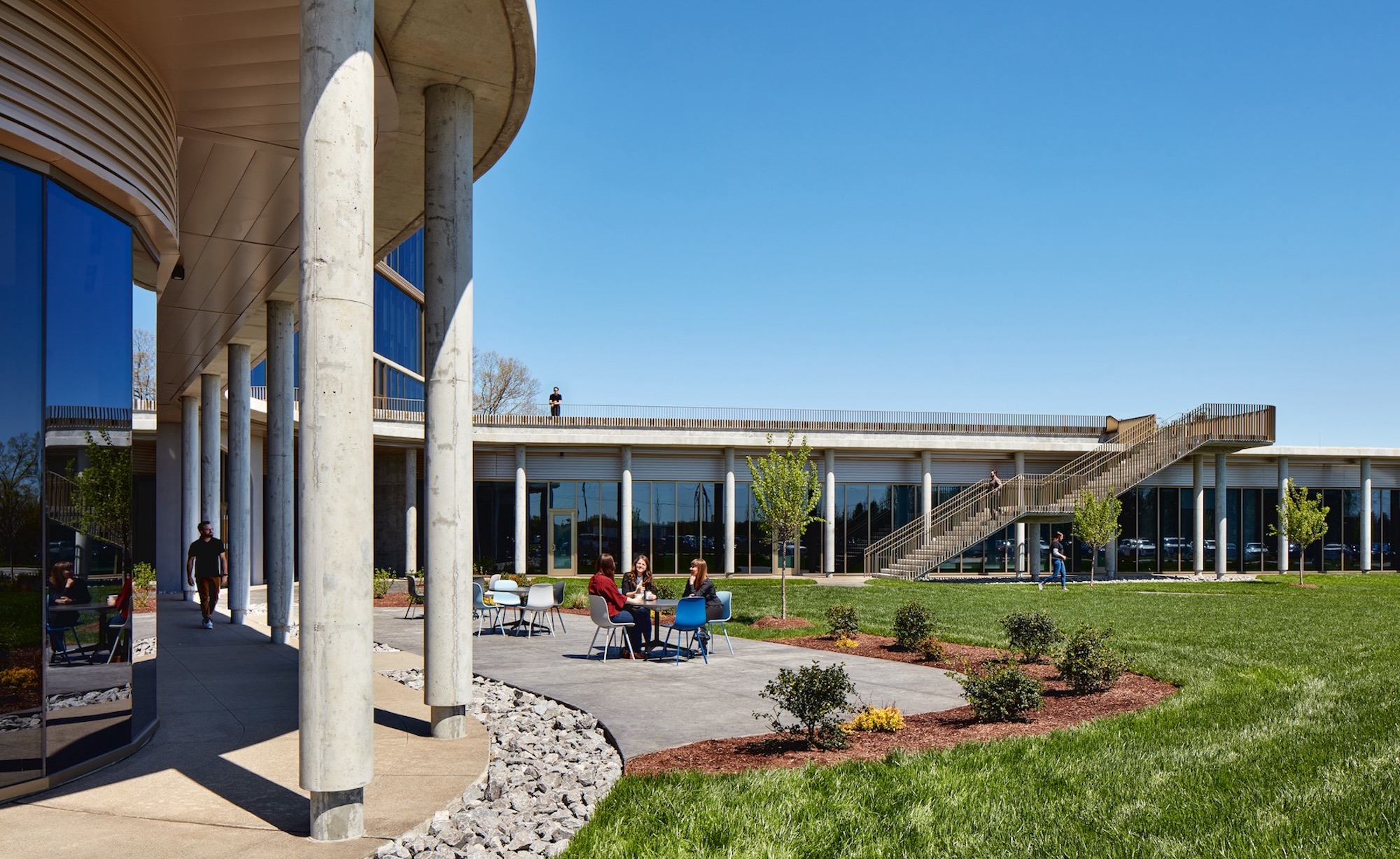
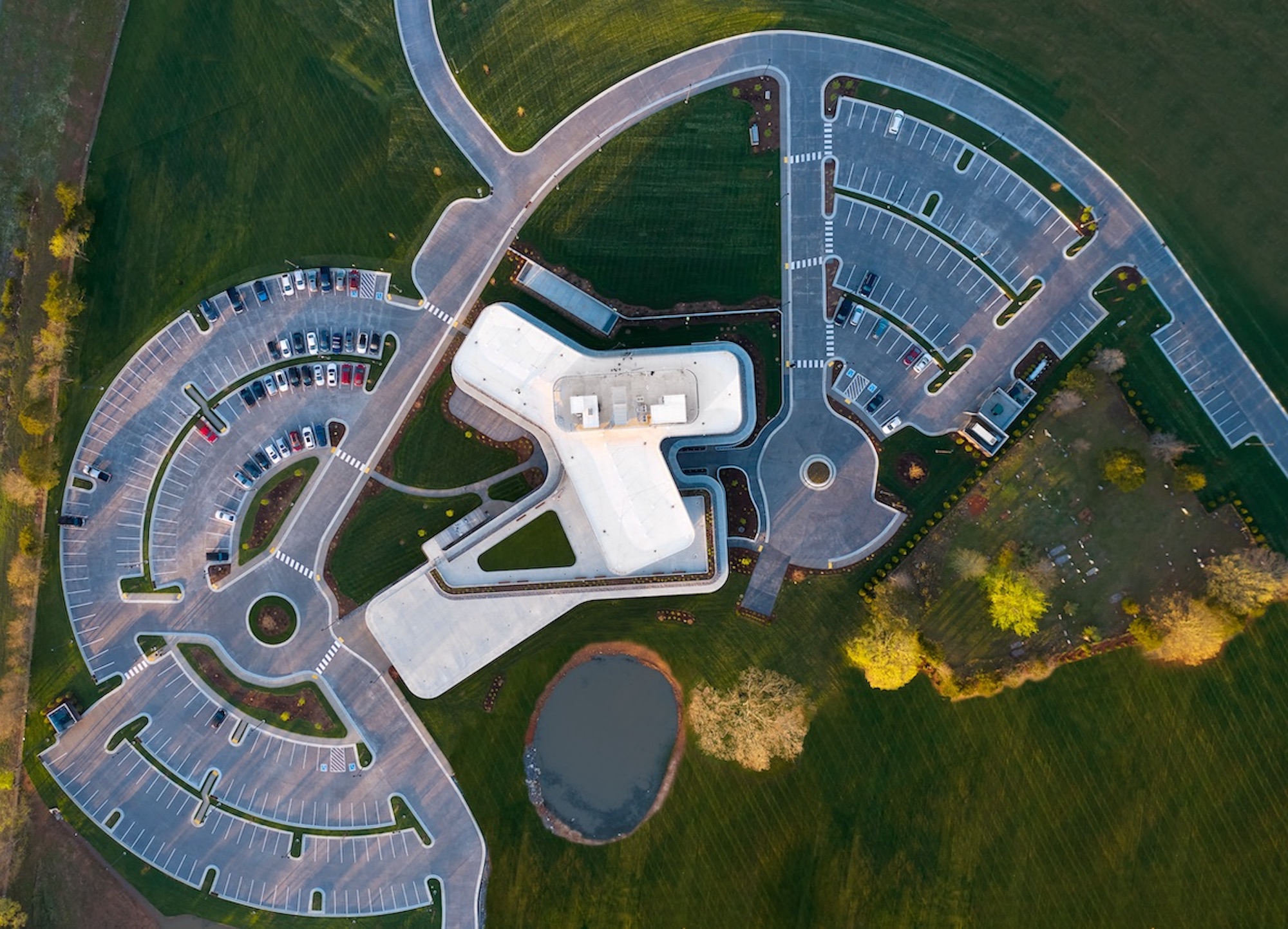
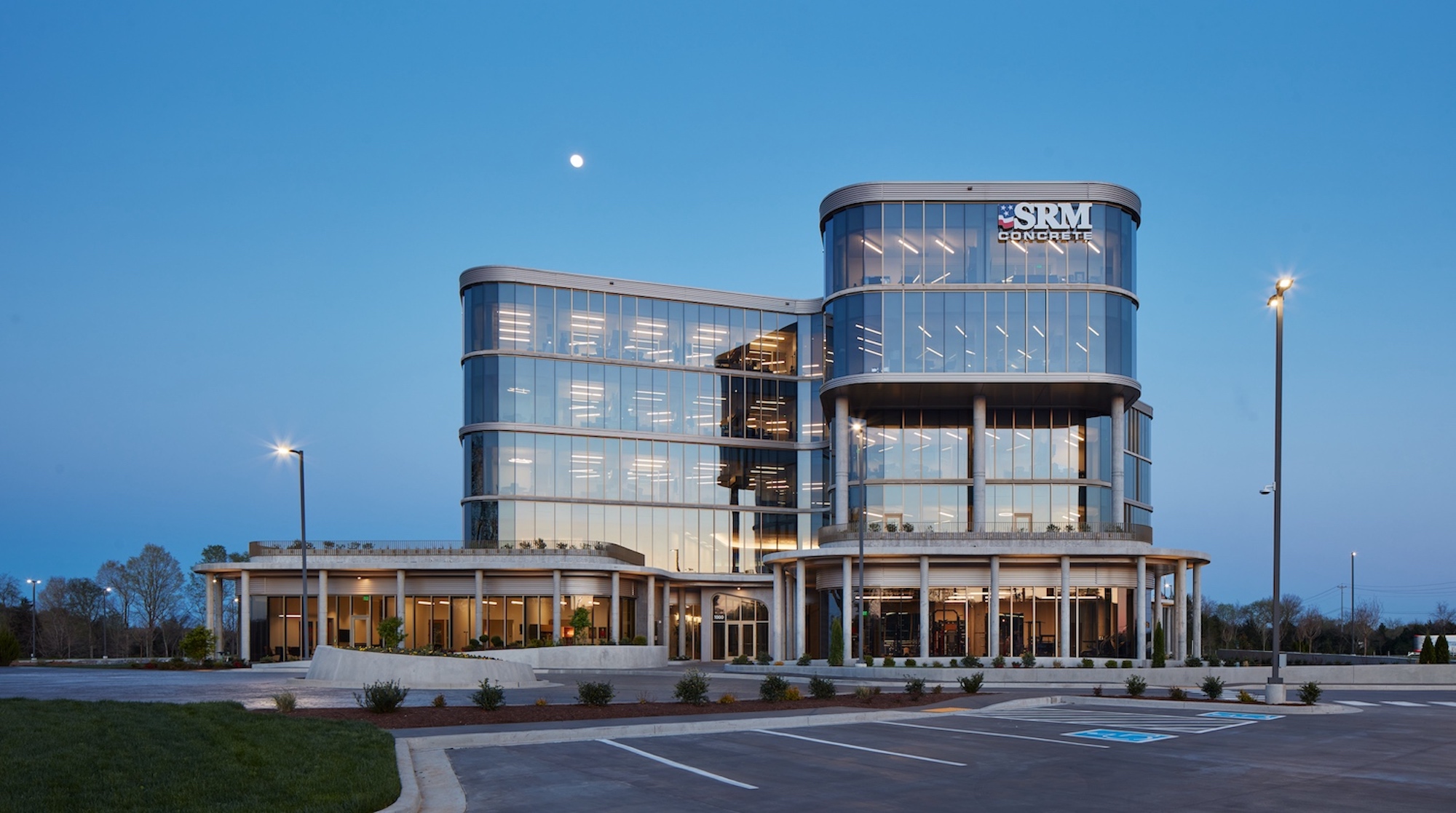
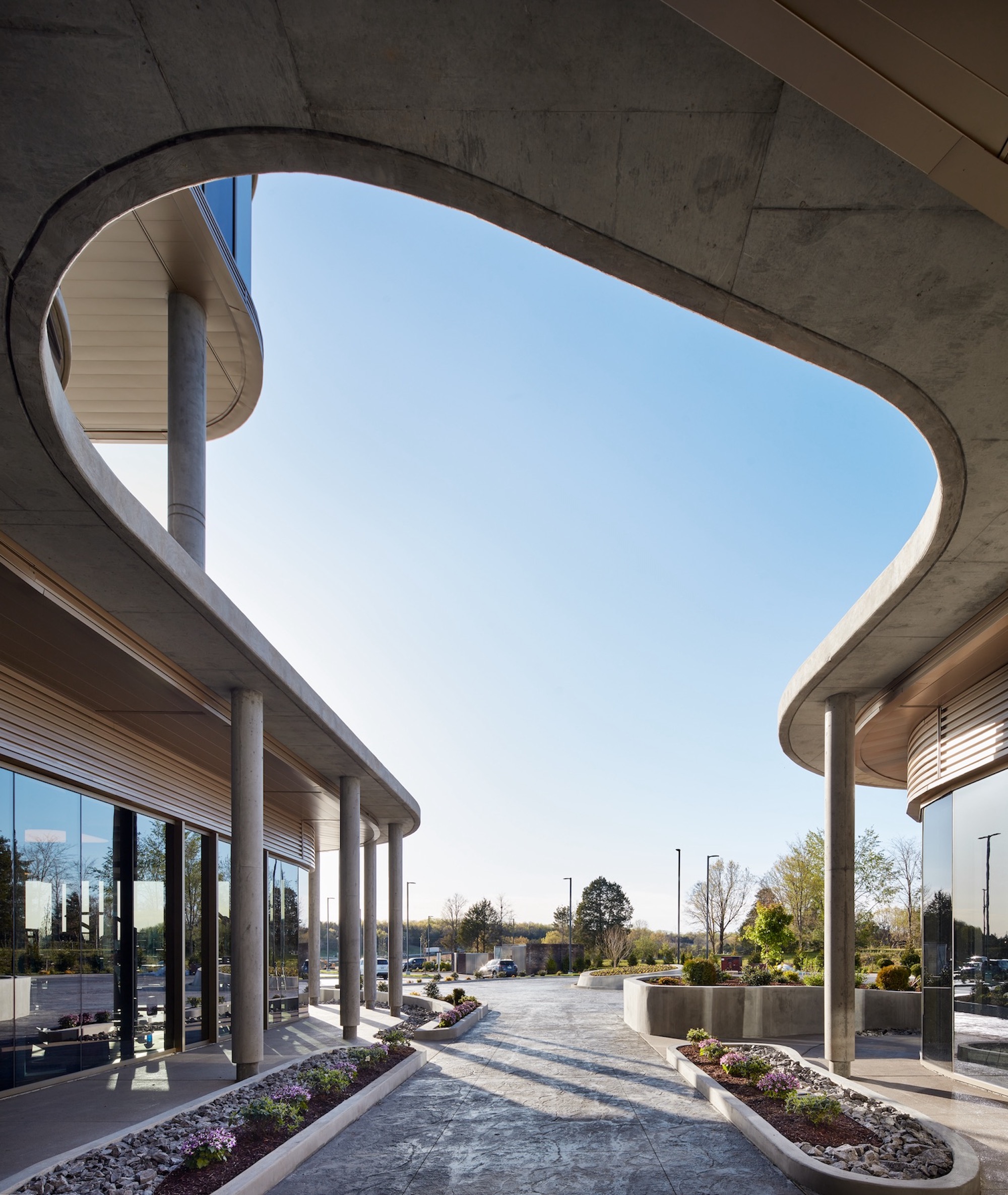
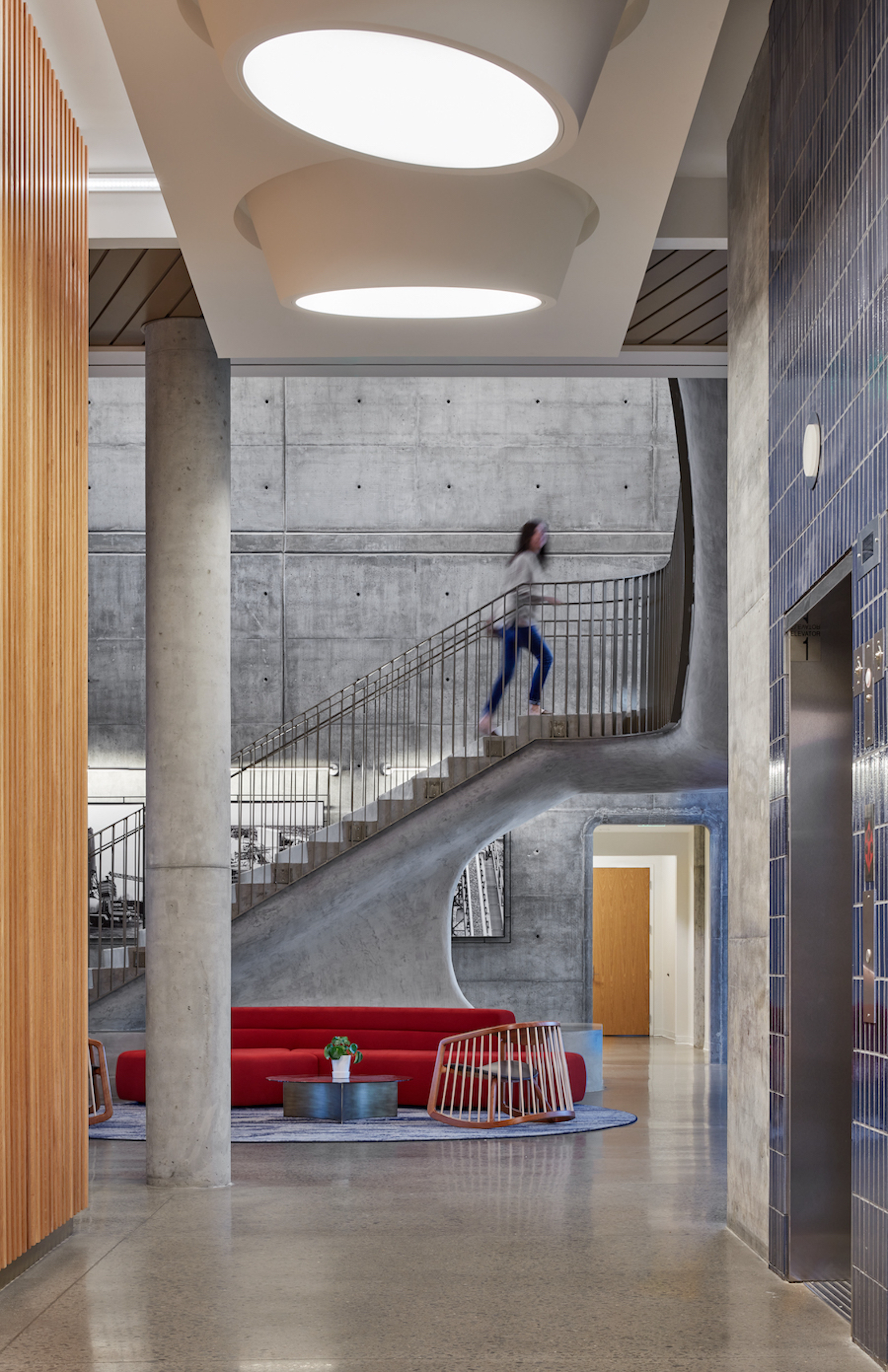
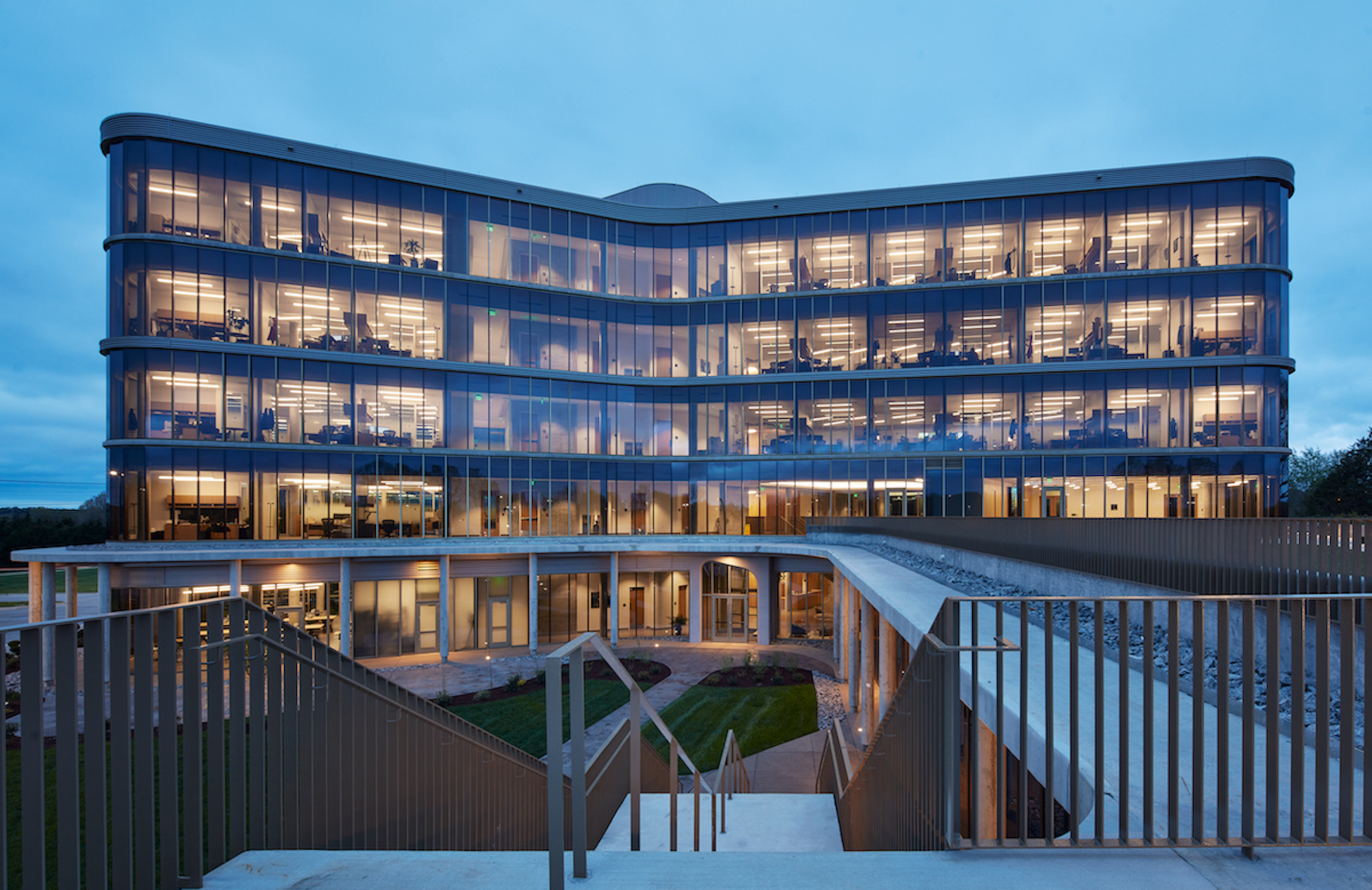
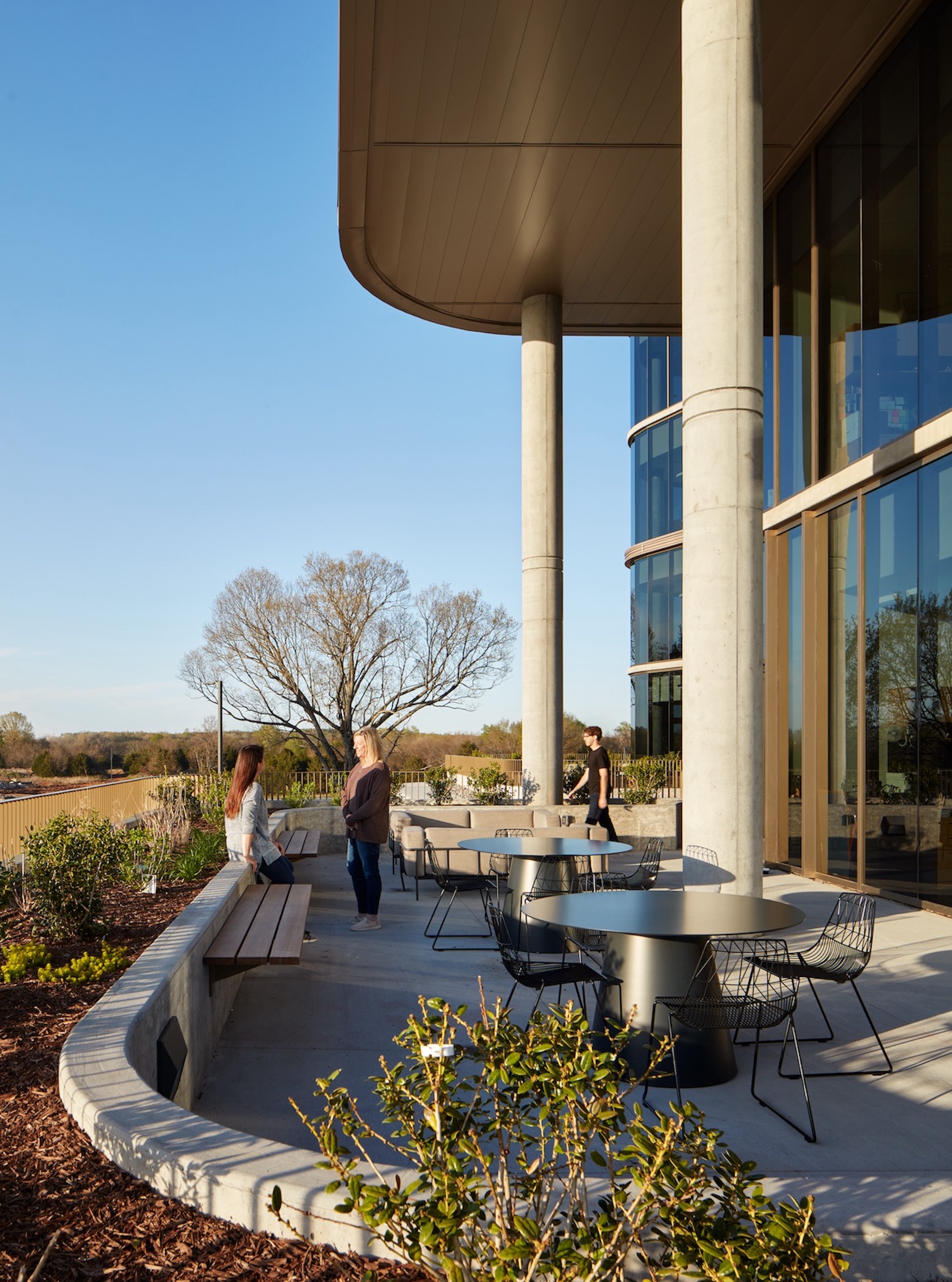
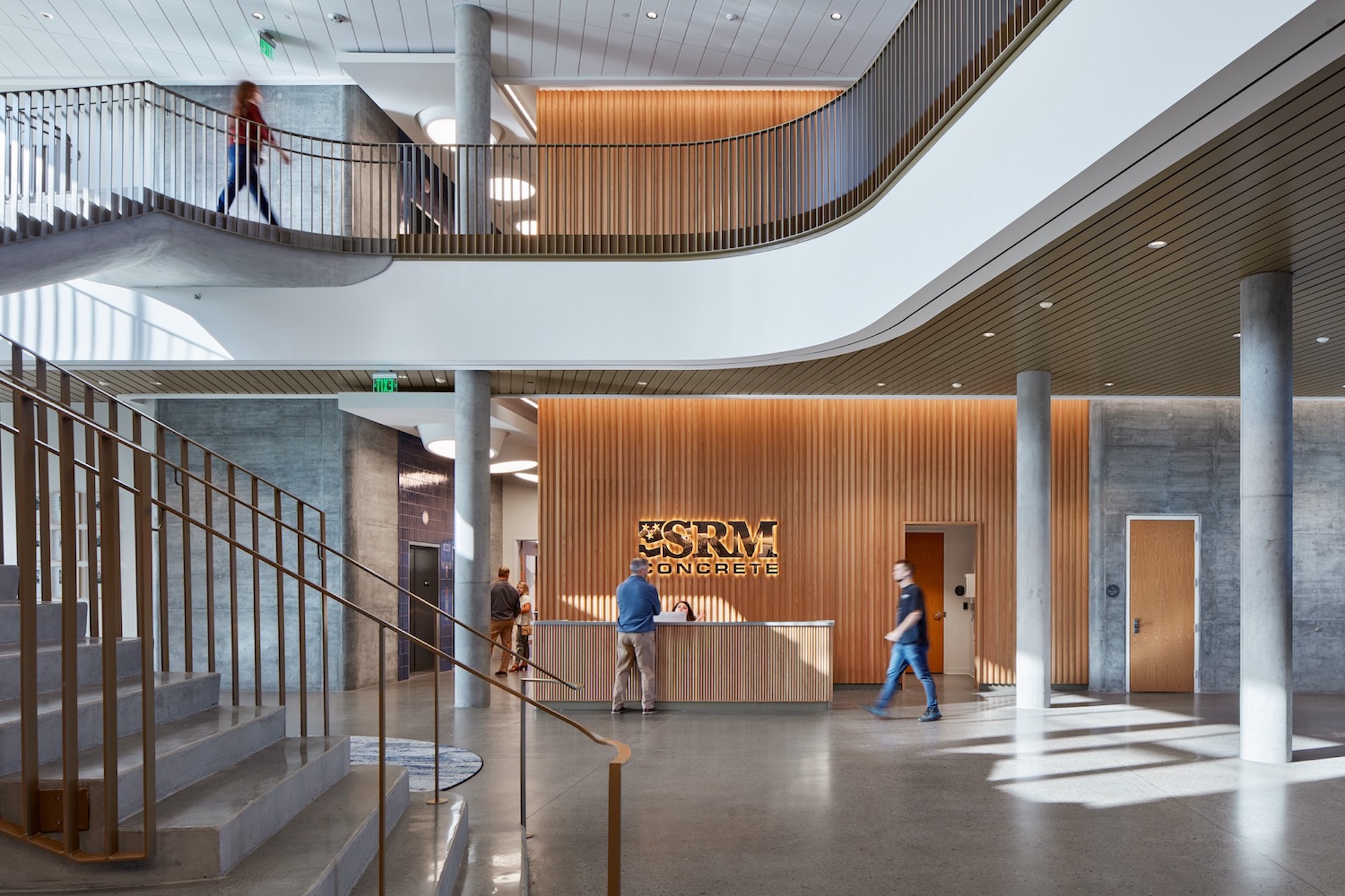
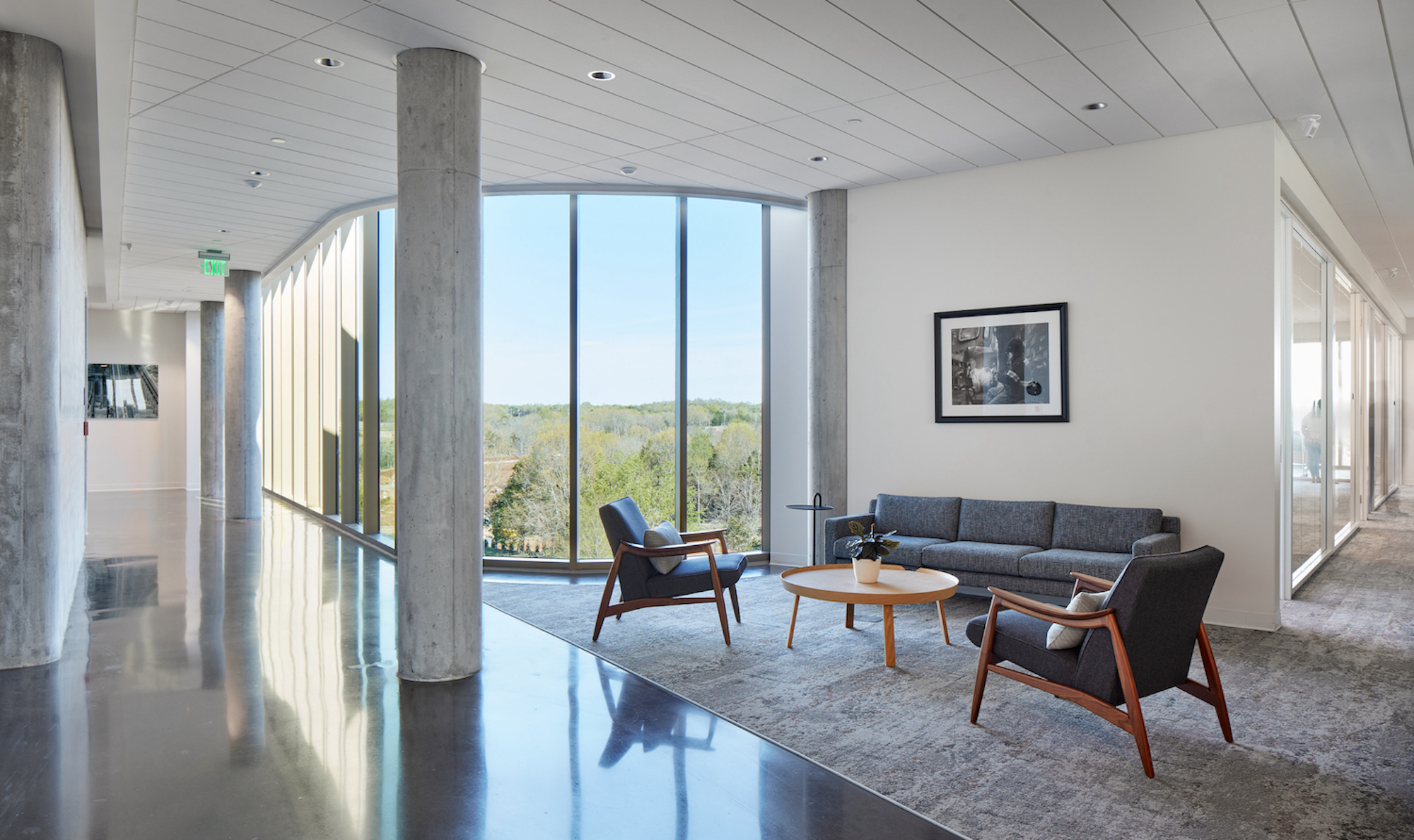
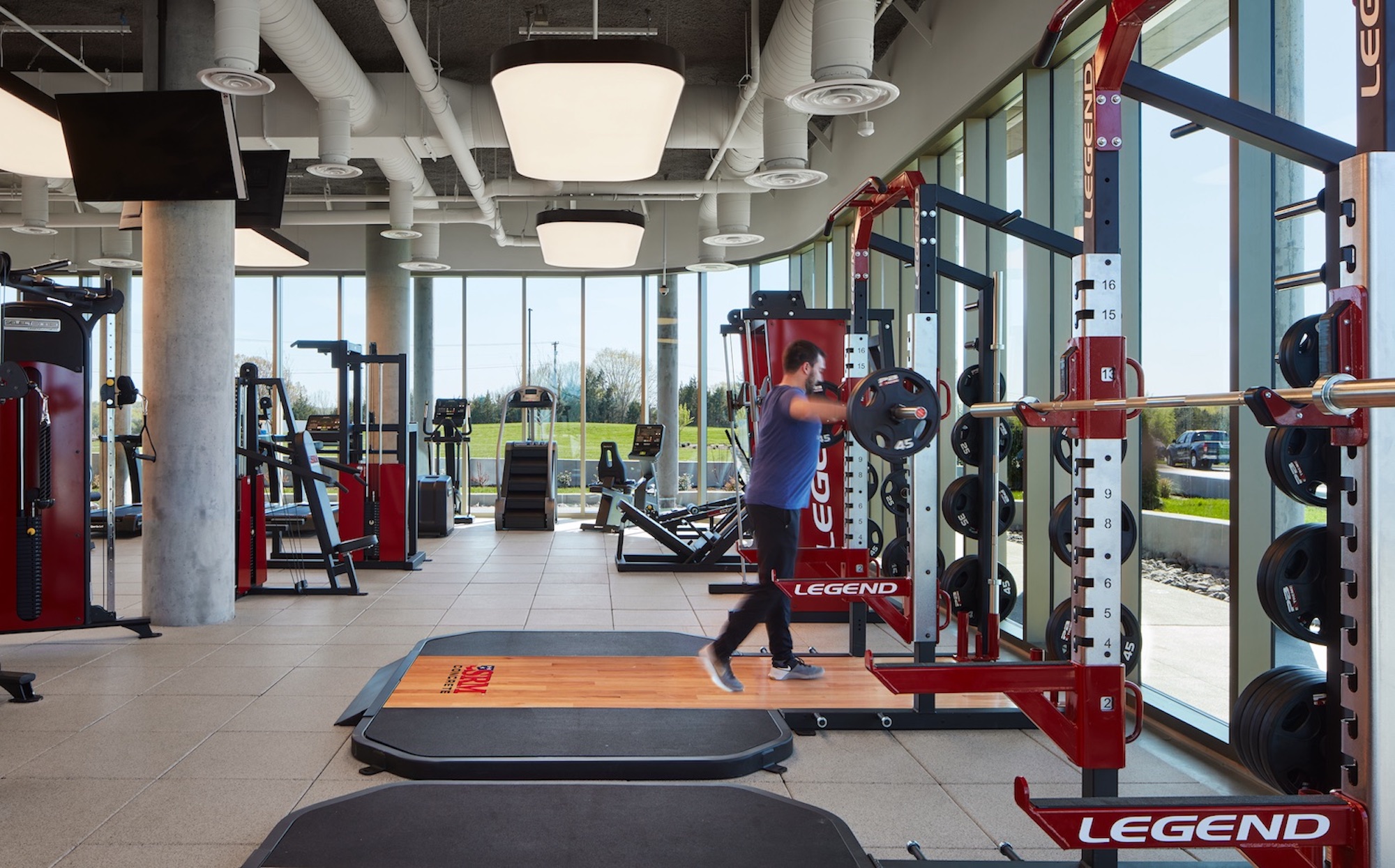
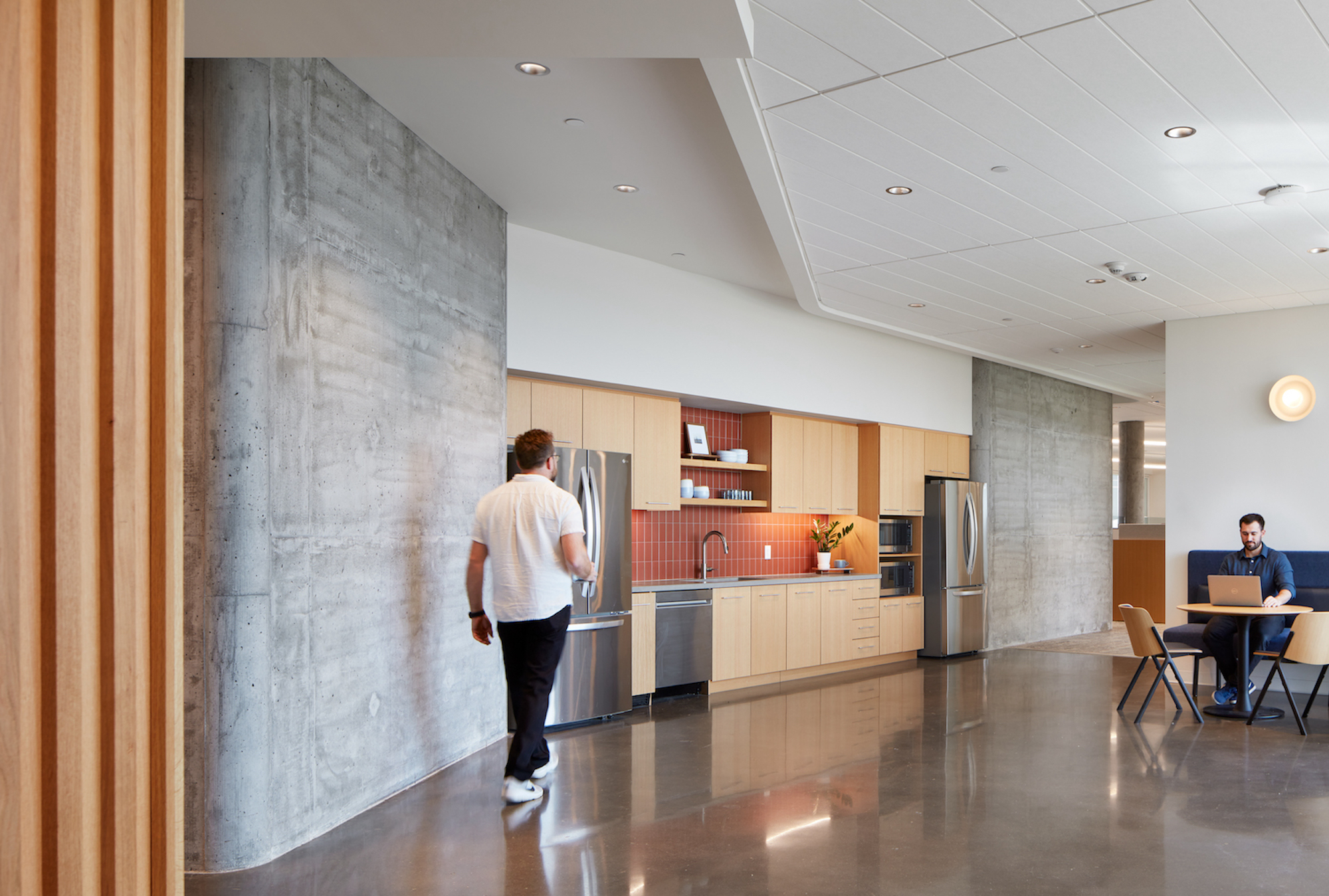
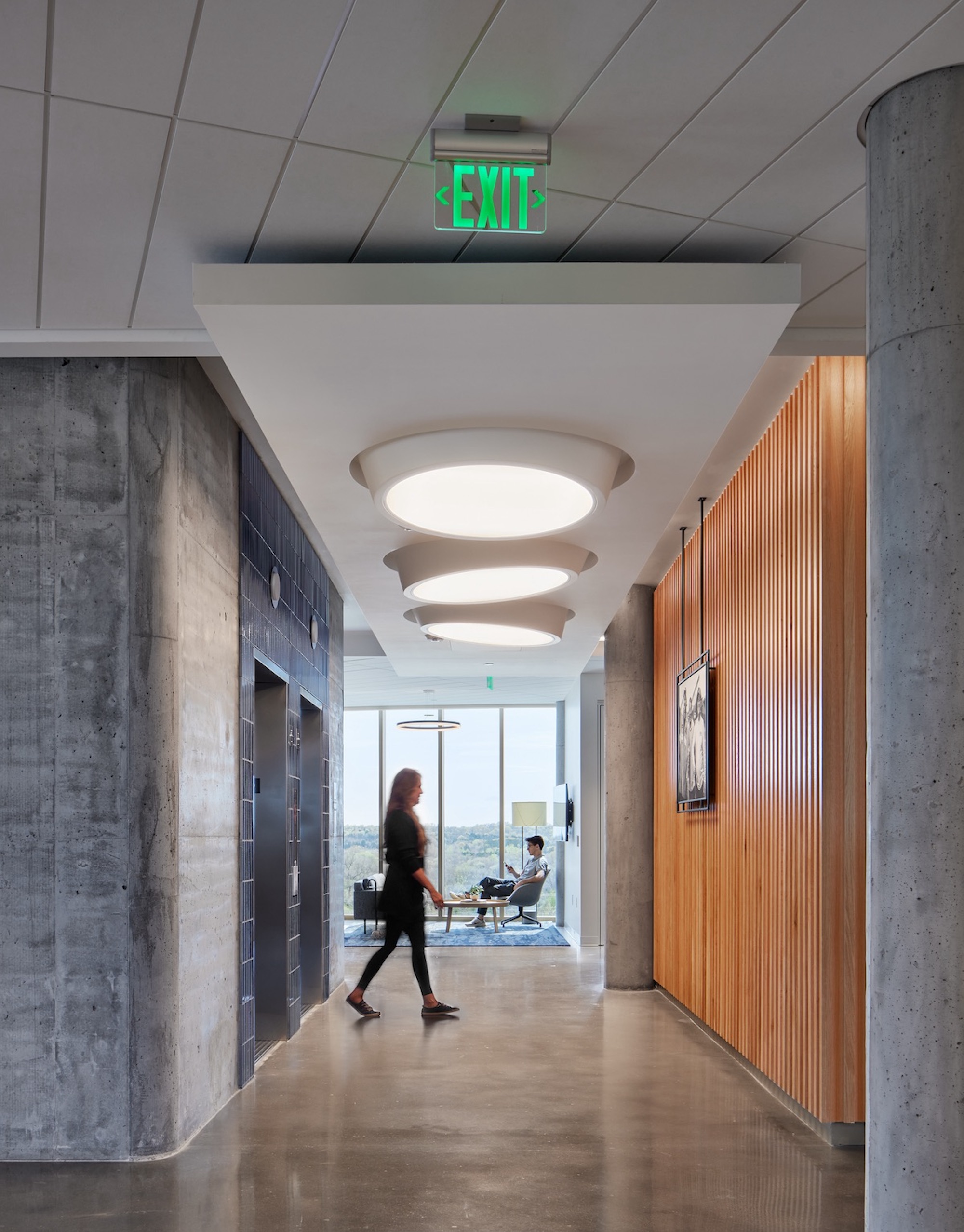
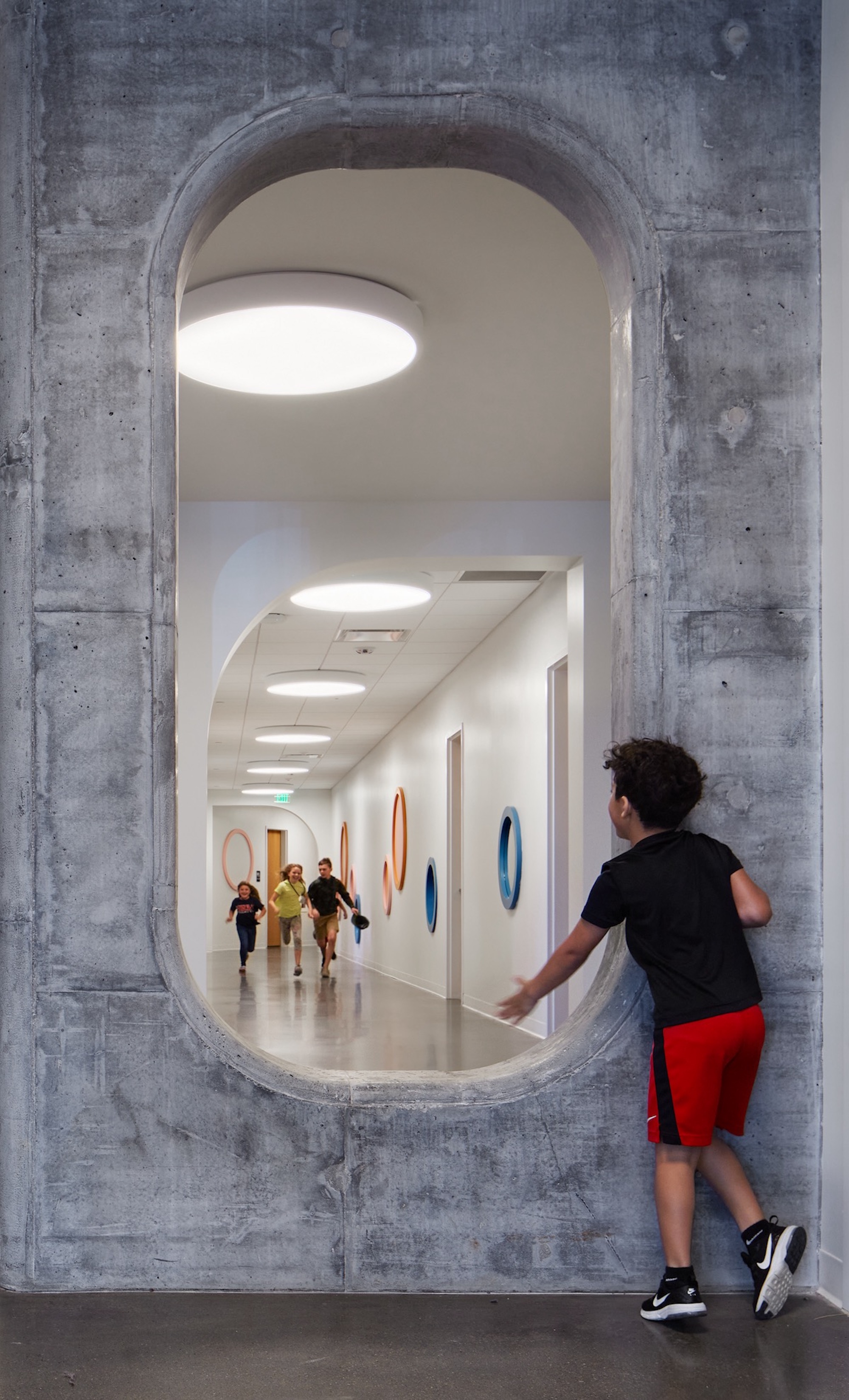
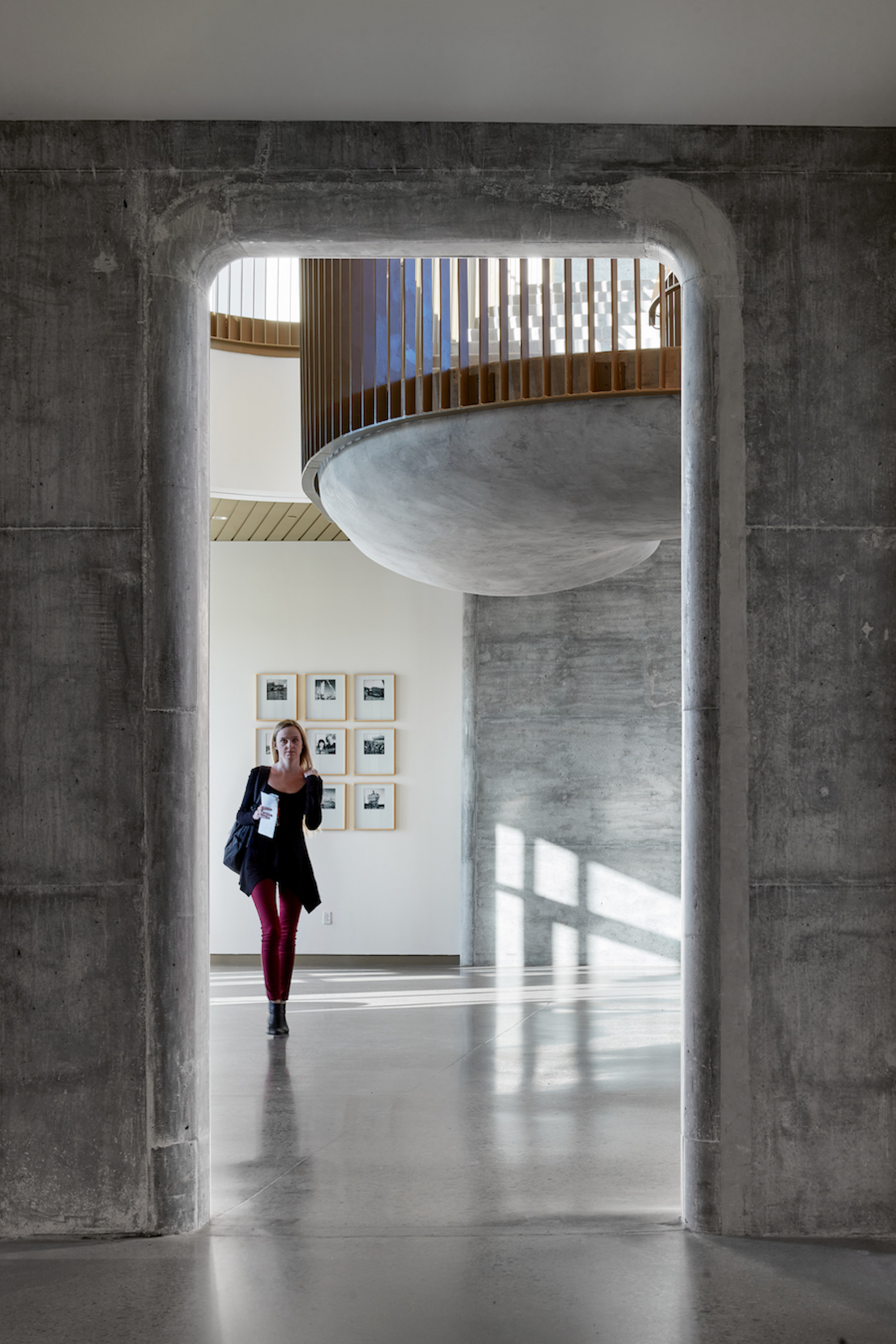
Related Stories
Contractors | Apr 10, 2023
What makes prefabrication work? Factors every construction project should consider
There are many factors requiring careful consideration when determining whether a project is a good fit for prefabrication. JE Dunn’s Brian Burkett breaks down the most important considerations.
Mixed-Use | Apr 7, 2023
New Nashville mixed-use high-rise features curved, stepped massing and wellness focus
Construction recently started on 5 City Blvd, a new 15-story office and mixed-use building in Nashville, Tenn. Located on a uniquely shaped site, the 730,000-sf structure features curved, stepped massing and amenities with a focus on wellness.
Architects | Apr 6, 2023
New tool from Perkins&Will will make public health data more accessible to designers and architects
Called PRECEDE, the dashboard is an open-source tool developed by Perkins&Will that draws on federal data to identify and assess community health priorities within the U.S. by location. The firm was recently awarded a $30,000 ASID Foundation Grant to enhance the tool.
Architects | Apr 6, 2023
Design for belonging: An introduction to inclusive design
The foundation of modern, formalized inclusive design can be traced back to the Americans with Disabilities Act (ADA) in 1990. The movement has developed beyond the simple rules outlined by ADA regulations resulting in features like mothers’ rooms, prayer rooms, and inclusive restrooms.
Sustainability | Apr 4, 2023
NIBS report: Decarbonizing the U.S. building sector will require massive, coordinated effort
Decarbonizing the building sector will require a massive, strategic, and coordinated effort by the public and private sectors, according to a report by the National Institute of Building Sciences (NIBS).
Legislation | Mar 24, 2023
New York lawmakers set sights on unsafe lithium-ion batteries used in electric bikes and scooters
Lawmakers in New York City and statewide have moved to quell the growing number of fires caused by lithium-ion batteries used in electric bikes and scooters.
Government Buildings | Mar 24, 2023
19 federal buildings named GSA Design Awards winners
After a six-year hiatus, the U.S. General Services Administration late last year resumed its esteemed GSA Design Awards program. In all, 19 federal building projects nationwide were honored with 2022 GSA Design Awards, eight with Honor Awards and 11 with Citations.
Mass Timber | Mar 19, 2023
A 100% mass timber construction project is under way in North Carolina
An office building 100% made from mass timber has started construction within the Live Oak Bank campus in Wilmington, N.C. The 67,000-sf structure, a joint building venture between the GCs Swinerton and Wilmington-headquartered Monteith Construction, is scheduled for completion in early 2024.
Urban Planning | Mar 16, 2023
Three interconnected solutions for 'saving' urban centers
Gensler Co-CEO Andy Cohen explores how the global pandemic affected city life, and gives three solutions for revitalizing these urban centers.
Sponsored | Cladding and Facade Systems | Mar 15, 2023
Metal cladding trends and innovations
Metal cladding is on a growth trajectory globally. This is reflected in rising demand for rainscreen cladding and architectural metal coatings. This course covers the latest trends and innovations in the metal cladding market.


